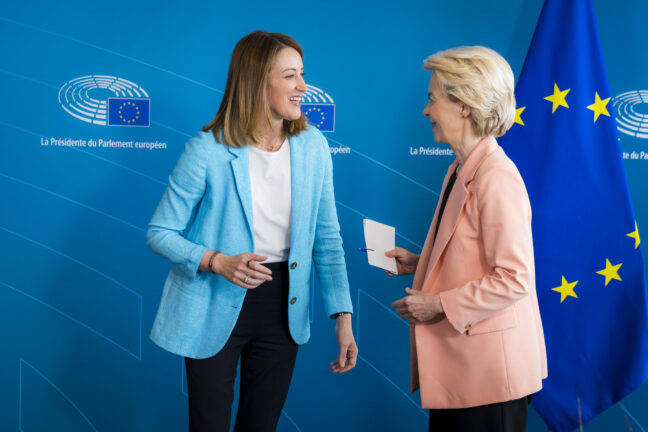European Parliament’s Committee on Legal Affairs voted to take legal action against the EU executive body. The move reflects MEPs’ displeasure with their exclusion from the decision-making process regarding the SAFE Regulation.
When Commission President Ursula von der Leyen proposed the creation of the Security Action for Europe (SAFE) Regulation, the financial tool won much praise. (The legislation seeks to bolster Europe’s defence industry through joint procurement and investments.) However, SAFE also faced criticism from the EU’s legislative branch, because the Commission side-stepped the European Parliament in the legislative process. The bloc’s executive arm envoked Article 122 of the Treaty on the Functioning of the European Union (TFEU). This allowed the EC to enact the legislation directly, with a mere obligation to inform MEPs about the decision.
Now, the Commission will likely have to defend its use of this mechanism in court. The original purpose of Article 122 is to streamline assistance to a member state that faces “difficulties or is seriously threatened with severe difficulties due to natural disasters or exceptional occurrences beyond its control”.
On Tuesday, the Parliament’s Committee on Legal Affairs formally recommended that Parliament take legal action against the Commission. It tasked Roberta Metsola, President of the EP, with filing the case on behalf of the institution.
You might be interested
Helpful partner, or a bothersome hurdle?
While some of the MEPs agree with the need for the SAFE Regulation, they are unhappy about the decision-making process. “This is not an isolated incident. Throughout President von der Leyen’s second term, the Parliament has been treated less as a democratic partner and more as a hurdle, with decisions increasingly originating within small circles, and democratic procedures considered box-ticking exercises,” says MEP René Repasi (S&D/GE).
“It is not just a legal matter. It’s about drawing a firm line: In Europe, power must remain accountable,” the group’s coordinator for the committee on legal affairs said.
With the Parliament left out of the equation, the Council already reached a decision at the end of May, adopting the €150bn instrument. The legislation entered into force on 29 May 2025.











